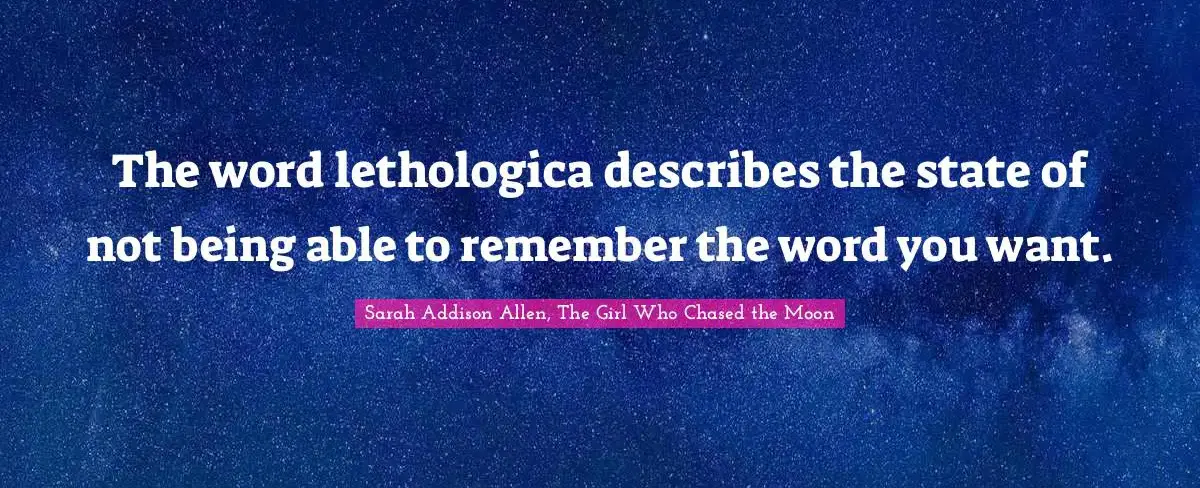The word lethologica describes the state of not being able to remember the word you want

The Fascinating Phenomenon of Lethologica: The State of Unseen Words

Have you ever found yourself in a situation where you’re engrossed in a conversation or writing an important document, and suddenly you draw a blank? Your mind wanders, desperately trying to recall a particular word, but all you’re left with is frustration. This peculiar state, characterized by the inability to remember the precise word one desires, is known as lethologica.
Understanding Lethologica and its Origins

The term “lethologica” originates from the Greek words “lethe,” meaning “forgetfulness” or “oblivion,” and “logos,” which signifies “word” or “speech.” Coined by psychologist Carl Jung in the early 20th century, lethologica is a phenomenon that affects individuals across all demographics, causing momentary lapses in linguistic retrieval.
Lethologica is not a sign of memory loss or cognitive decline. Rather, it is a normal experience in the cognitive process, often triggered by stress, exhaustion, or momentary distractions. It is a temporary glitch in our ability to access vocabulary, and although it can be frustrating, it is typically harmless.
The Science Behind Lethologica
While the exact mechanisms of lethologica are not entirely understood, there are various possible explanations for this phenomenon. One theory suggests that lethologica occurs due to a temporary disconnection or hiccup in the neural pathways responsible for word retrieval, particularly within the left hemisphere of the brain.
Another hypothesis proposes that the inability to summon a particular word may be attributed to interference or competition from similar words or concepts stored in our memory. As our brain searches for the precise word amidst a multitude of related terms, it can momentarily stall, struggling to identify the correct linguistic representation.
Coping Strategies for Lethologica
Lethologica can strike at any time, leaving us grappling to find the right word and feeling a sense of frustration or embarrassment. However, there are several techniques that can help alleviate this momentary lapse and enhance the retrieval process:
Word Association: Try to remember a related word or concept that could trigger the missing word. Our brains often create strong connections between related terms, so using associative thinking can lead us to the desired word.
Contextual Clues: Consider the context of the conversation or the topic you’re discussing. Reflecting on the subject matter can provide valuable clues and assist in recalling the elusive word.
Relaxation Techniques: Engaging in activities that promote relaxation, such as deep breathing exercises or taking a short break, can help reduce stress and improve overall cognitive function, aiding in word retrieval.
Brain Training Exercises: Regularly challenging and stimulating your brain through puzzles, word games, or memory exercises can enhance cognitive function, including language recall.
Embracing Lethologica as a Normal Cognitive Quirk
Although lethologica can be momentarily frustrating, it is important to remember that it is a common occurrence experienced by individuals worldwide. Rather than becoming exasperated, embracing this phenomenon as a normal cognitive quirk can alleviate stress and tension, allowing us to navigate the situation with greater ease and grace.
In conclusion, lethologica is an intriguing cognitive phenomenon characterized by the temporary inability to recall a specific word. By understanding its origins, adopting coping strategies, and embracing it as a normal aspect of the human thought process, we can navigate these fleeting moments of linguistic uncertainty and continue expressing ourselves eloquently.
Related Posts
Quick Links
Legal Stuff

